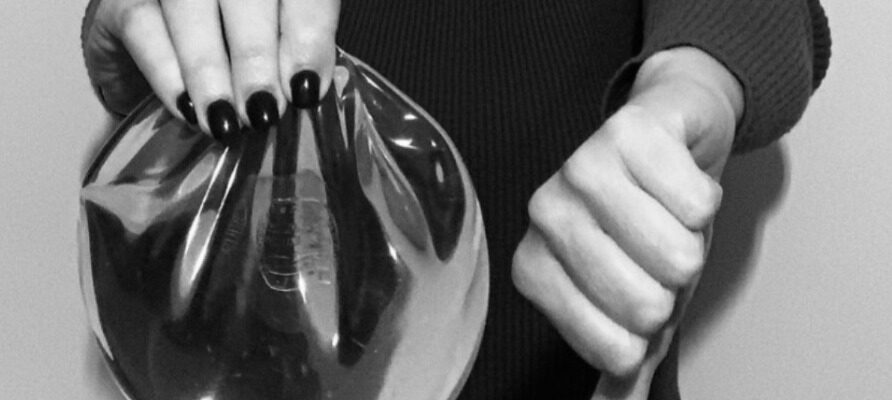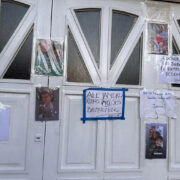In recent years, social media has become a crucial platform for raising awareness about Breast Implant Illness (BII). Angie Monasterio, an Argentinian activist, describes BII as «a hidden epidemic» and asserts that the beauty industry heavily invests in concealing the issue. Monasterio herself only learned about the potential dangers of breast implants through social networks and support groups. She reflects that in a Youtube storytelling video from 2018, titled My breast implants almost killed me, which now has more than 200.000 views.
When reached by AUNO, she states: «Women like me, who got ill after breast augmentation surgery, found out about the consequences of implants through social networks, support groups, and storytelling videos.»
First Encounter with Activism
Monasterio’s own experience with BII began in 2018 when she removed her implants after 15 years due to severe illness. «All the symptoms that I had were reversed the day after I took off the devices«, she recalls. Her journey led her to discover a website called «Healing Breast Implant Illness» which provided crucial information and support, and was run by Nicole Daruda, a Canadian woman who had also suffered from BII.
“That’s when I started to realize what was really happening to me”, she says on her storytelling video, and adds: “There were hundreds and thousands of testimonies of women reporting the exact same symptoms, and they had all started since they had been implanted!”.
Inspired by Daruda, Monasterio created the Facebook group, “Enfermedad de Implantes Mamarios Iberoamérica,” which now has 36,600 followers. She also manages an Instagram account with nearly 47,000 followers, offering Spanish-speaking women a platform for information and support. «There was almost no information about BII or explantation surgery before my group, much less in Spanish,» she notes.
Seeking the Truth
Monasterio criticizes international health agencies, like the U.S. Food and Drug Administration (FDA), for failing to adequately test and monitor breast implants and their manufacturers, leading to widespread ignorance among medical professionals. «Indeed, most of us are self-diagnosed,» she says, highlighting the lack of recognition and support from healthcare providers.
The stories collected at Facebook show women suffering from BII often spend years consulting doctors who dismiss their symptoms or attribute them to other causes. Monasterio emphasizes the role of financial interests in suppressing information about BII, stating, «There has always been plenty of evidence, but we’re fighting a big lobby, a multi-billion dollar business whose principal profit is hundreds of thousands of women’s health around the world.»
The Impact of BII Ibero-America
The Facebook group has had a profound impact on many women, including Montserrat Camacho from Spain. Camacho suffered from a range of health issues for 17 years, including chronic fatigue, digestive problems, and infertility, before discovering Monasterio’s posts. «During my medical visits, all my tests came back clear, and doctors assured me I was in good health. But inside, I had a feeling that things weren’t right,» she says to AUNO . After learning about BII, she underwent explantation surgery in 2022, which she credits with saving her life.
Explantation Surgery and Recovery
Activists like Monasterio advocate for the En Bloc Capsulectomy, a procedure that removes both the implant and the surrounding scar tissue. They argue that this is the most effective way to mitigate symptoms and prevent further complications. However, accessing this surgery can be challenging, especially in countries like the United States, where it is not typically covered by insurance unless the implant has ruptured. Angie Perez, a Venezuelan model and journalist, had to take out a loan to afford the procedure. «An explantation surgery is not considered an emergency in the US unless the implant is ruptured,» she explains. Perez also criticizes the practice of leaving capsule tissue during surgery, which can contain harmful silicone remnants.
Denial and Misinformation
Monasterio believes that the refusal to acknowledge BII is part of a broader effort to protect the lucrative breast implant industry. She cites the bankruptcy of Dow Corning in the 1990s and the scandal involving Poly Implant Prothèse (PIP) in 2010 as precedents that implant manufacturers want to avoid. «Doctors and surgeons do not inform us about BII because they don’t understand the syndrome and can’t diagnose it,» she says. In Argentina, women frequently report dismissive attitudes from medical professionals, who often label them as «crazy« or «pathological.«
A Cause Worth Fighting For
Despite these challenges, Monasterio and other activists continue to push for greater recognition of BII. They have been instrumental in raising awareness about breast implant-associated anaplastic large cell lymphoma (BIA-ALCL), a type of non-Hodgkin’s lymphoma linked to implants. The FDA has also begun to acknowledge the connection between implants and various types of cancer, though they still consider these cases «rare.»
Monasterio concludes with a message to women considering breast implants: «I would like to tell women who are thinking about having implants that they should not let themselves be mutilated in order to reach a standard of beauty imposed by a society that is deeply sick. We are much more than this.»
Foto de portada: @tetasfueraspain
*Nota producida en el marco del taller English For Journalists dictado por AUNO
AUNO-20-8-24
MT-JJR



















